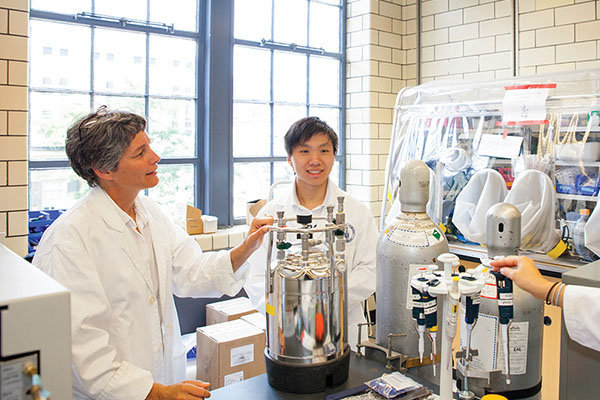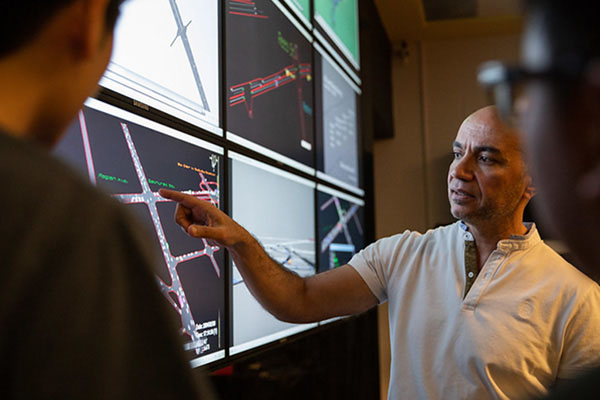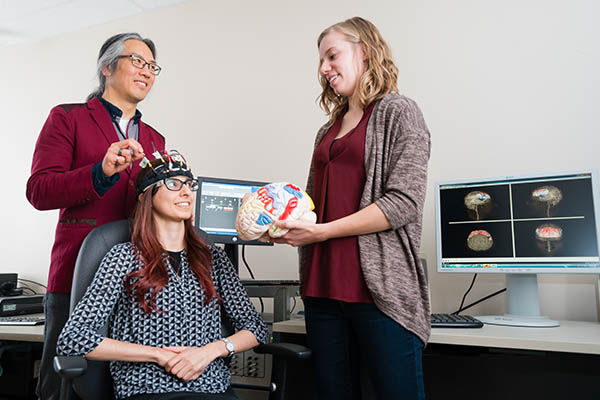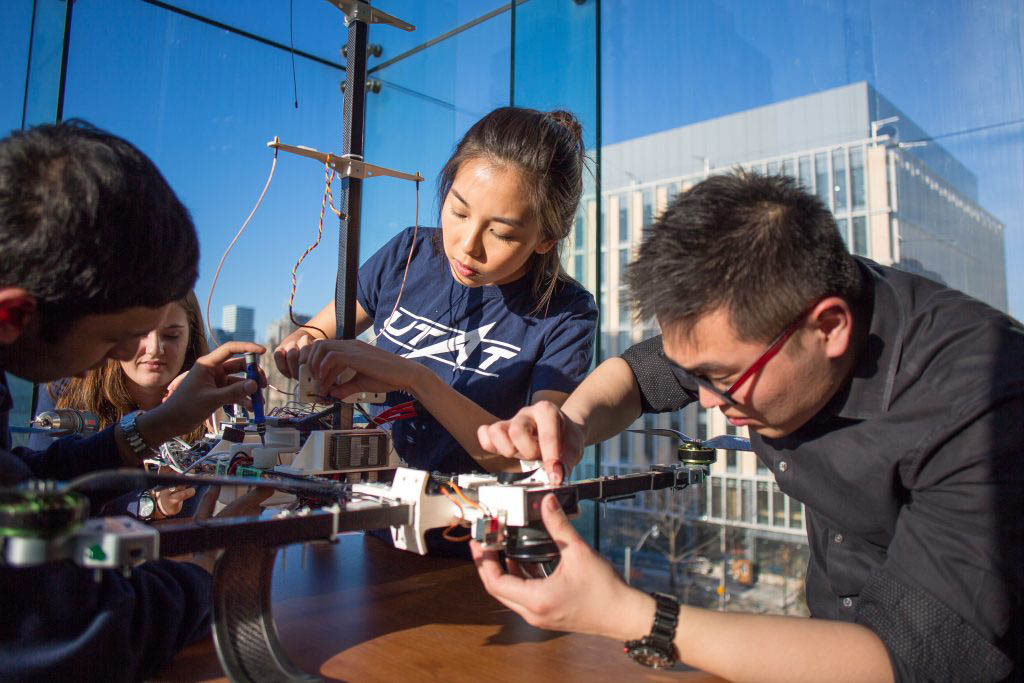Abstract
As people spend most of our time indoors, exposure to indoor pollutants can have major health impacts. Indoor air quality (IAQ) also plays a significant role in cognitive performance and learning, making it particularly important in classroom environments. The rise in availability of low-cost air pollutant sensors provides a growing opportunity to leverage low-cost sensor measurements and big data analysis to assess IAQ and the impacts of building design on IAQ. In this study, we first evaluated the performance of different low-cost sensors (PurpleAir, QuantAQ MODULAIR-PM and MODULAIR) in both outdoor and indoor environments on the Georgia Tech Campus, by comparison with co-located research-grade instrumentation. Results highlight the direct impact of aerosol particle water on the low-cost sensor performance, in addition to the expected dependence on particle size distribution. A network of sensors was also deployed on campus beginning in Fall 2020, over an extended period (> 1 year) and across many buildings (> 20). This unique, continuous, and comprehensive data set allowed for investigation of the most important parameters that impact IAQ of various rooms and building designs. The data were used to train and test a Tree based machine learning model, which had high prediction accuracy for indoor pollutant levels. Various building design factors such as ventilation type were identified important predictors of indoor pollutant levels. Overall, results from this study provide data-driven insights into what types of environments different sensor types are best suited for, under what aerosol conditions they face the most limitations, and indicate that outdoor low-cost sensor networks may provide sufficient data to evaluate indoor pollutant concentrations across a wide range of buildings.
Speaker Bio
Dr. Nga Lee “Sally” Ng is the Love Family Professor in the School of Chemical & Biomolecular Engineering, School of Earth & Atmospheric Sciences, and School of Civil & Environmental Engineering at the Georgia Institute of Technology. She earned her doctorate in Chemical Engineering from the California Institute of Technology and was a postdoctoral scientist at Aerodyne Research Inc. Dr. Ng’s research focuses on the understanding of the chemical mechanisms of aerosol formation and composition, as well as their health effects. Her group combines laboratory chamber studies and ambient field measurements to study aerosols using advanced mass spectrometry techniques. Dr. Ng serves as the Editor-in-Chief of ACS ES&T Air. Dr. Ng’s research contribution has been recognized by a number of awards, including the Sheldon K. Friedlander Award and the Kenneth T. Whitby Award from the American Association for Aerosol Research (AAAR) and the Ascent Award from the American Geophysical Union (AGU). Dr. Ng is currently leading collaborative efforts to establish the Atmospheric Science and mEasurement NeTwork (ASCENT) in the US.












